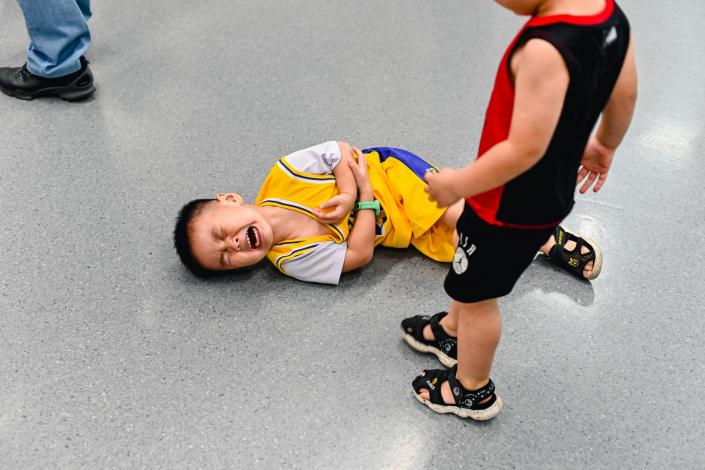Teaching Kids Not to Hit
This post contains references to products from one or more of our advertisers. We may receive compensation when you click on links to those products. Terms apply to the offers listed on this page. For an explanation of our Advertising Policy, visit this page.
If your child likes to hit others, then there are a few basic steps to help them stop.
Your toddler has started pre-school. They seem to be doing well, and you are glad to have a few hours of quiet around the house. You hope they learn and are listening but you are really not sure. Then you get a call from the teacher that your child is misbehaving - they’re hitting other kids. They’ve tried to get the child to stop at preschool but it has continued, so now they’re asking for your help.
It’s not uncommon for a child to hit another. There are many reasons for why this might be the case, but ultimately your child is not controlling their anger in an appropriate way. Is very possible that they simply don’t know how else to express themselves. This is where you as a parent get to really do some parenting for a young child (or older). Teaching your child the appropriate ways to express themselves is important.
To begin, you should not let your child hit at home. They should not be hitting other siblings and they should not be hitting you. If they are, then you shouldn’t be surprised that they’re hitting other kids when you’re not around. If a child is hitting at home, then you need to address the issue immediately - the longer it goes on, the harder it will become to address later. It’s unlikely that hitting will pass on its own without some intervention by a parent.
The primary reason that a child hits, as we mentioned earlier, is because they simply don’t know how to express themselves when something goes wrong. Hitting seems like the easy solution as the other party will give in to your child’s desires. When your child exhibits this behavior, you need to talk to them about it. Simply punishing them with timeout isn’t going to fix the behavior. A discussion is warranted.
If your child isn’t hitting at home, you still need to talk with them about it. Ask them why they hit - what led to them hitting? Ask them if they like when they get hit (do NOT hit your child to show them what it’s like if they’re not sure). Ask them if there is a better way that they may have been able to express their anger or frustration. Yes, your child is still young, but they will understand much of what you’ve talked about.
If a discussion (or multiple discussions) isn’t enough, then you need to look at what other things could be leading to this behavior. Are there other factors in the home that lead to a hostile environment? Do they have other role models that they see who hit each other? Do they watch TV shows or play games where violence is present? Look at everything in your environment that may be leading to this.
If you’re still unable to address the behavior, you may need to seek professional help. While most kids will be able to change their behavior with consistent reminders about not hitting and about better ways that they can express their frustration, there are some kids that simply have something more difficult going on. Professionals can help to get to the root of the problem.
Just because your child hits does not mean you’ve been a bad parent. Most kids will have hit another child in their life for some reason or another. Working to change their behavior and help them to learn the correct way to express themselves is what makes you a good parent. If you shrug off the hitting, that would be what would make you a bad parent.
Teach your kids how to correctly express themselves. Hitting is often a first resort when they’re upset. Teach them ways to deal with and express their feelings that doesn’t physically hurt other people.





